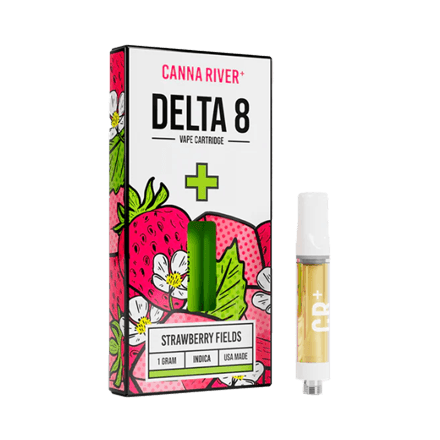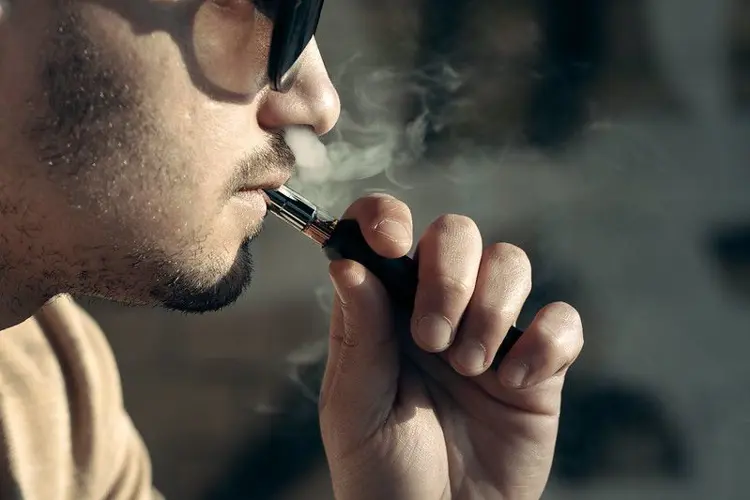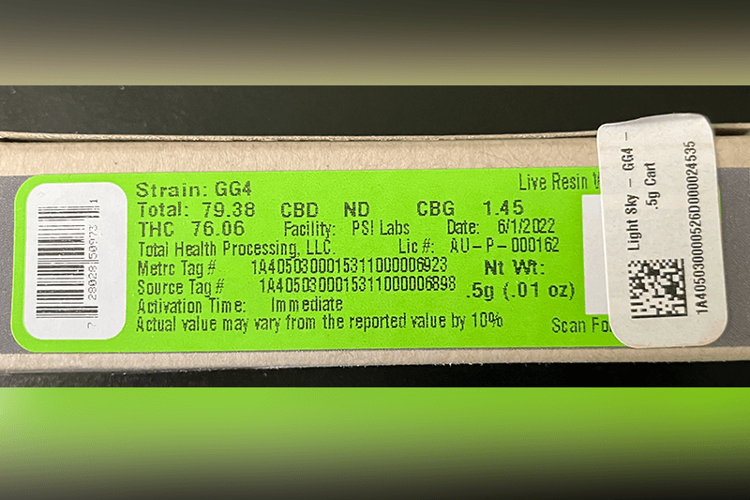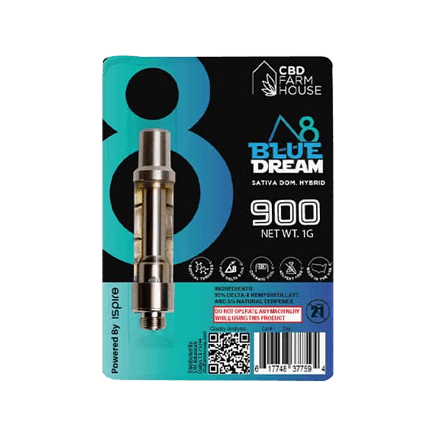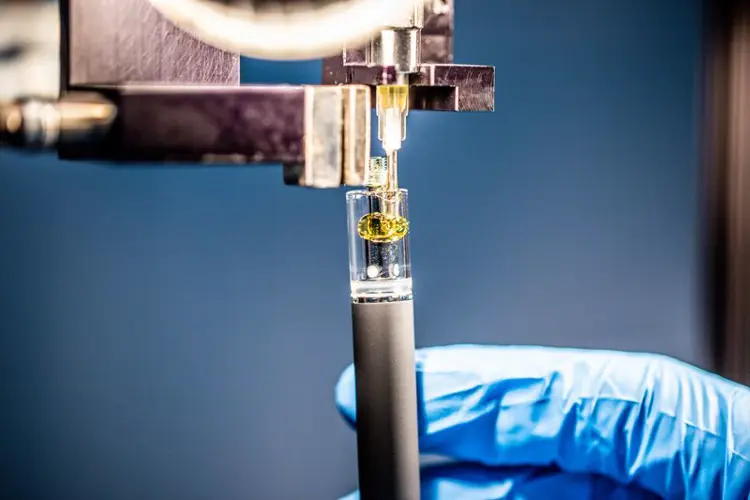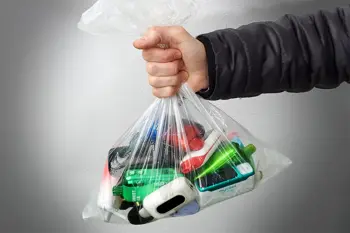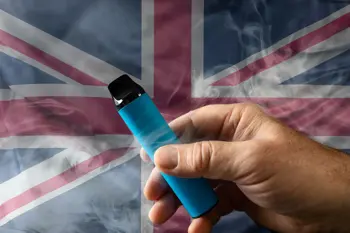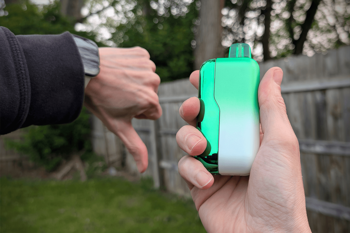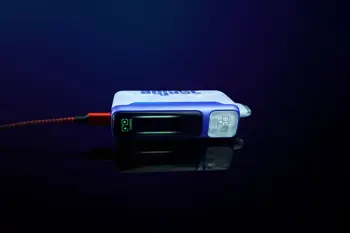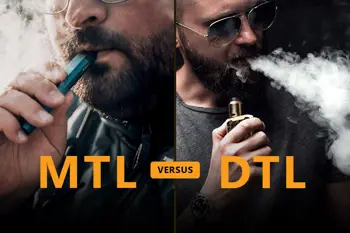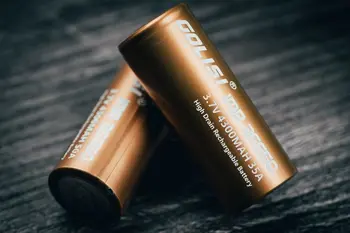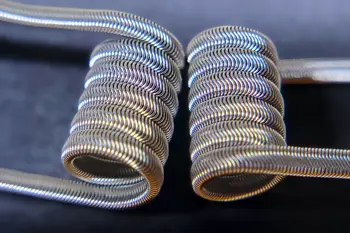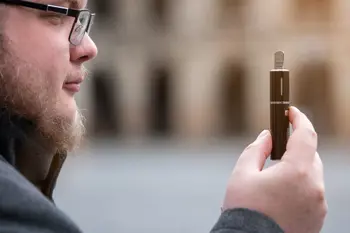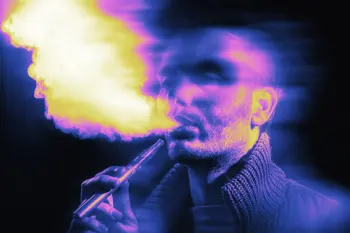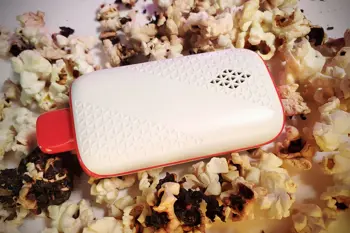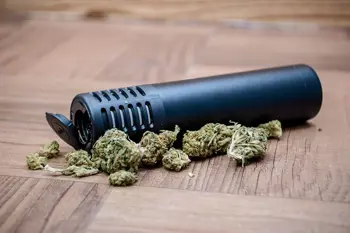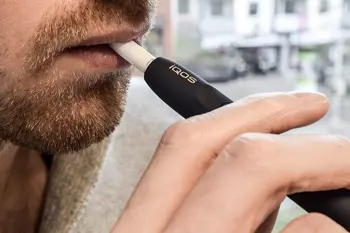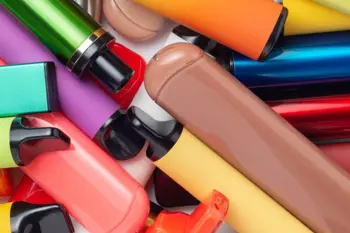- Chemicals in fake carts increase the risk of respiratory damage, shortness of breath or airway irritation, vomiting, fatigue, and chest pain.
- To decide whether a cart is fake, check for production details like manufacturing dates, license numbers, and batch or lot numbers.
- Common red flags of knockoff carts include watery oil, dirt cheap pricing, dark or hazy oil, and packaging design with trademarked characters.
- Illicit cannabis sellers may use vitamin E acetate, a dangerous filler that helps fake carts look and behave like regular oil.
Those active in cannabis and vaping circles have heard a few vape cart horror stories. They go something like this: an unsuspecting person snags a cheap cart from a shady supplier, only to suffer devastating health effects. This often involves lung damage, a form of acute respiratory distress syndrome misnamed by the CDC “e-cigarette or vaping product use-associated lung injury” (“EVALI”).
It’s critical to stay aware of the ingredients you’re vaping. Fake THC and delta 8 cartridges can be dangerous, and while rare, they do exist. Unscrupulous manufacturers sometimes use cost-saving but potentially deadly additives like vitamin E acetate, the primary source of the “EVALI” lung injuries.
Learning how to tell if a prefilled THC cart or a delta 8 cart is a fake (counterfeit) or just a low-quality rip-off is important. In the current booming cannabis market, there are a lot of shady sellers who cut costs by sacrificing product quality—and some are even willing to sacrifice their customers’ health. Here’s how to tell.
How to tell if a cart is “laced”: signs of a contaminated vape
Maybe you’re wondering what the harm really is, aside from an unsatisfying high. When you inhale chemicals that aren’t approved for that purpose, there’s no promise of safety. It’s a massive gamble with every puff.
Potential health hazards of using a fake cart include:
- Respiratory damage, including the risk of “EVALI”
- Coughing, shortness of breath, and airway irritation
- Vomiting and nausea
- Fatigue and weakness
- Chest pain
The build quality, materials, and construction of your vape cart are also important. Black market carts are far more likely to leak or overheat, sometimes causing burns or injuries.
Without conducting your own chemical testing to make sure your cart doesn’t contain dangerous ingredients, the best sign of a high-quality product is the source. Don’t buy from shady street sources or vendors that aren’t willing to provide detailed testing.
How to tell if a THC cart is fake
Knowing the red flags can keep THC and delta 8 vape cartridge users protected against harmful ingredients—often before the product is ingested.
Has the vape cart been tested and approved?
Although regulations vary based on state, there’s certain info you can expect to find on the packaging of regulated cannabis products. Fake delta 9 THC carts often lack key production details, including:
- Manufacturing and packing dates
- License number
- Batch and lot numbers
You can also check the cart packaging for a QR code. Scanning this code can be a useful tactic to find out if the product has been fully tested and approved. Also, take a look at the serial number printed near the QR code. If this number doesn’t match the one listed on the brand’s site, toss the product. You’ve got a fake cart on your hands.
State-regulated cannabis sellers are required to share lab results with the public. If the cartridge is safe to use, it shouldn’t be difficult to find this information online. This is especially easy to do if you already have the product’s license number.
There are no similar rules in many states for hemp-derived cannabinoid products like delta 8 THC or HHC. However, conscientious manufacturers and retailers provide many of the same safeguards. Look for websites that publish testing results, and explain what ingredients are in the cart. If they don’t want to share details about their products, pass.
Fake vape cart packaging design
It’s not a guarantee, but there are some trends in fake cart packaging design. Consider it an early red flag worth listening to. Black market sellers typically buy premade packaging from Chinese dealers. These aren’t actual cart brands.
If the box is covered with popular cartoon characters or other images that are probably trademarked or copyrighted, it’s probably a fake cannabis product. Chances are, reputable cart brands aren’t going to plaster their packaging with your favorite childhood cartoon or video game characters.
Legitimate cart vendors are likely to change up their designs every now and again. If you remember seeing the exact same packaging when you came across a product years ago, this could also be a warning sign.
Although it would be impossible to name every fake cart “brand” on the market, we’d like to highlight a few of the most common. These packages always contain black-market THC oil, and have been linked to severe lung injuries:
- Dank Vapes
- Exotic Carts
- Cereal Carts
- Chronic Carts
- West Coast Carts
Vape cart copycats are out there
Many fake brands are simple to spot, but copycats of well-known delta 9 brands are more complicated. Sometimes, rather than creating a knockoff brand of their own, fake cart sellers will steal branding from a respected manufacturer and sell counterfeit carts.
You can check the brand’s website for images of current packaging, as many fake brands fail to imitate or stay up to date. And, again, the package should contain the manufacturer’s state license number, and the lot and batch numbers can be researched on the company’s website.
This problem is mostly easy to avoid: regulated delta 9 products are only sold in state-licensed dispensaries. If you find them on the street, they’re fakes. Delta 8 and other hemp-derived products are mostly sold directly by the manufacturer or by approved retailers. Check with the manufacturer before buying from any source you don’t 100 percent trust.
Cannabis cart quality
You can tell a lot more about a cart after you’ve opened the box.
Give the cart a quick swish and pay attention to the liquid’s consistency. High-quality cannabis oil should be viscous without excessive air bubbles. Try dipping the cart downwards and paying attention to how bubbles move. If they rush from one side to another, the liquid is thin or simply low-quality. Either way, you don’t want to ingest it.
Caution: cannabis oil adulterated with vitamin E acetate looks and behaves like pure cannabis oil. The suggestions above are good ways to tell if other additives have been used, but are not reliable to exclude possible adulteration with vitamin E acetate.
An unpleasant flavor or aftertaste can also point to a faulty cart. Burned or weird-tasting vapor doesn’t happen with quality oil and a well-made cart, as long as it’s vaped at the correct voltage.
Pay attention to THC and delta 8 cart pricing
Never forget the old adage: If something seems too good to be true, it probably is. If you see a particular vape cart selling for a much lower price from one seller than from others in the same area, it might be a counterfeit.
As noted before, buy vape carts from trusted sources. Legitimate delta 9 carts are only sold in state-regulated dispensaries. And the most reliable source for hemp-derived products like delta 8 THC carts is the manufacturer.
Can you identify a fake cart by its color?
THC, CBD, and delta 8 oils are usually a light pink, straw, amber, or gold color—or they can be completely clear. Some THC oils contain more plant material than others (live resin carts, for example), and tend to be a slightly darker gold. Adding terpenes to cannabis extract can also affect the color.
As you use a vape cart, the oxygen drawn into the extract from vaping causes it to oxidize and darken. This is natural. Exposure to heat and light can also darken cannabis oil. But a brand new cart should never be dark brown or black, which could indicate poor production or storage practices.
The bottom line is that you can’t tell if a cart is fake strictly by the color. But a new cart with dark brown, black, or hazy oil—or visible solid materials floating in it—could be contaminated or very old. Those carts should be avoided, whether they’re fake or not.
What does a fake cart high feel like?
Whether it’s THC or delta 8, fake carts can sometimes be identified by the high they provide. When the goal is to cut costs, the additives and cannabis substitutes aren’t selected based on quality.
Cannabis oil carts are powerful, containing 3-10 times as much THC per puff as the smoke from a joint or pipe. If you don’t get high immediately from a delta 9 cart, you should be suspicious.
A fake cart high varies from person to person. Users have reported headaches after trying fake cartridges, or the overall experience of a “dirty high.” But the most common “effect” is simply a weak high, caused by the manufacturer diluting the THC with other substances to save money.
If you’re familiar with how your body normally responds to cannabis and something feels off, listen to your gut. It could be the result of a “laced” cartridge, possibly containing spice—a truly awful substance made with powerful synthetic cannabinoids—known for its bad side effects.
What do fake carts taste like?
A vape cart that has a metallic or burned taste may be made with substandard materials or be poorly constructed—a good sign of a low-quality product that may be counterfeit.
Legitimate unflavored vape carts should leave a smooth, mostly tasteless impression on the mouth, while flavored carts should provide notes that correspond to the flavor listed. If the vaporizing process is creating unwanted flavors, there are clearly ingredients that don’t belong in the liquid’s formulation.
In many carts, the processed cannabis oil is mixed with terpenes to add flavor. Often in low-priced carts, the manufacturers will use non-cannabis terpene sources, which may make the flavor weird or unnatural. That doesn’t necessarily mean they’re fake, but they’re not exactly desirable either.
How to know if a cart has vitamin E acetate
In 2019, an outbreak of lung injuries caused by illicit vape carts killed 68 people and hospitalized nearly 3,000 others. Despite the efforts of the Centers for Disease Control and Prevention (CDC) to blame nicotine vaping for what the agency termed “e-cigarette, or vaping, product use associated lung injury (EVALI),” the actual culprit was vitamin E acetate contained in black market THC carts.
Illicit cannabis processors and sellers found that THC oil diluted with vitamin E looked and behaved just like pure THC in a cart, so saved money by mixing their cannabis oil with products containing vitamin E. When consumed as a supplement or topical cream, vitamin E acetate is perfectly safe. But for cannabis vapers, the clear, tasteless oil can be deadly.
Inhaling vitamin E acetate can cause a powerful form of acute respiratory distress syndrome (ARDS), defined by severe and possibly permanent lung damage. Despite the danger, vitamin E acetate may still be used as a thickening agent in black market THC oil used in fake vape carts.
Interestingly, the biggest giveaway that a product contains vitamin E acetate is contrary to what you’d expect from a cheap cart. If the liquid looks extremely thick and has little to no air bubble movement, it could be the result of vitamin E acetate.
The best way to avoid vitamin E acetate? Stick to legitimate, fully tested delta 9 THC from legal dispensaries, and delta 8 carts from known manufacturers. If you follow the precautions described above, you won’t need to worry about running into this deadly chemical.
Possible fake THC cart contaminants
Although it’s the most well-known, vitamin E acetate isn’t the only danger that can be found in a knockoff vape.
Illegitimate brands aren’t restricted to the typical additives (mostly terpenes) found in legitimate carts.
Dodgy growing and processing processes can lead to black market carts becoming contaminated with unsafe chemicals and byproducts. Potential contaminants include:
- Pesticides (myclobutanil, avermectin, bifenazate, etc.)
- Heavy metals (including lead in poorly made carts)
- Hydrogen cyanide
In particular, hydrogen cyanide can develop when the myclobutanil pesticide is heated, leading users to inhale this poisonous substance. Trusted vape manufacturers undergo testing to ensure they don’t contain these lung-damaging toxins.
Are fake THC and delta 8 carts always dangerous?
Black market THC products are not always dangerous—but health risks are present often enough that the risk isn’t worth it. The money you might save buying untested carts isn’t in the same ballpark with the price you’ll pay for a long hospitalization.
When you purchase from a trusted vendor, vaping a THC or delta 8 cart can be a relatively low-risk way to enjoy the benefits of cannabis. But vape carts from a sketchy dealer will always be a complete crapshoot.
Not all THC and delta 8 carts are created equal
At the end of the day, it’s important that cannabis users do what they can to protect themselves from risky products. While illicit cart sellers will continue to take advantage of a growing market, cannabis enthusiasts should stay vigilant and aware of what they’re purchasing.
It all comes down to this: if the seller doesn’t give you a reason to trust them and the purity and efficacy of their product, move along to the next. With so many options out there, there’s no longer any reason to waste time on shady sellers.
Protect yourself (and get a better high) by turning to trusted online vendors and dispensaries for vape carts and other cannabis products.
